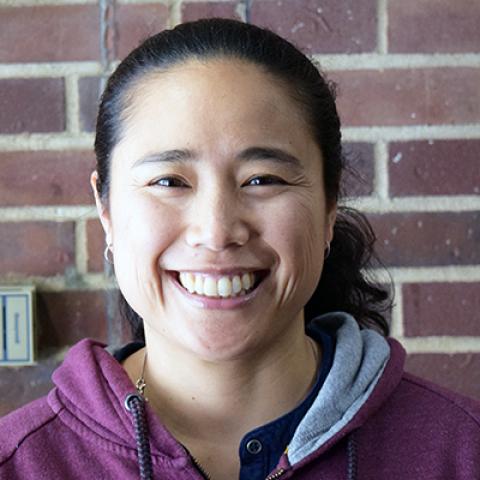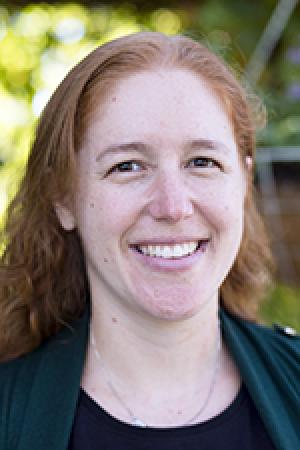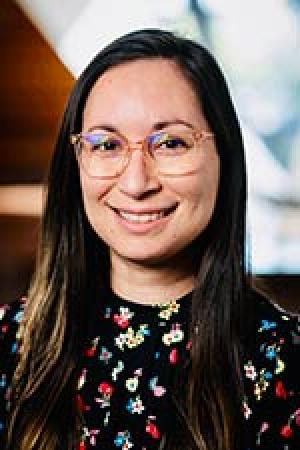STEM education
The PhD in STEM education is interdisciplinary across STEM fields. Students pursuing this degree will choose an area of emphasis in one of four specializations—science, mathematics, engineering, or agriculture—while simultaneously participating in scholarly work that spans all areas of STEM education. This integrated style of study is one of the first in the nation, and is designed to prepare scholars to conduct thoughtful disciplinary and interdisciplinary research in STEM education in order to assume roles as university faculty members, educational leaders, policymakers, and researchers.
This program emphasizes:
- K-12 STEM integration
- Teacher preparation and professional development
- Equity and social justice
- Research on K-12 and higher education teaching and learning
Quote from Felicia Leammukda

I chose the University of Minnesota because I wanted to work with a diverse population of students and develop a curriculum that would fit the needs of a differentiated classroom. The grant I was first assigned to allowed me to do both those things.
Coursework
Mathematics specialization
Mathematics education faculty spend significant time in K-12 schools, collaborating with teachers, and conducting research to improve mathematics curricula and pedagogy. Coursework and research in this field emphasizes both:
- Mathematics teacher preparation
- Mathematical knowledge for teaching
- Practice-based teacher education
- Teaching and learning rational numbers and fractions in grades 4-8
- Identifying strategies to increase underrepresented student achievement
- Math in urban classrooms
Agricultural specialization
This is a research-oriented program that will prepare students for university faculty positions, public and corporate leadership roles in education, natural resource management, extension education, international development, and many other professional careers in agriculture and life sciences.
Career outlook
Graduates of the program have assumed positions as university faculty, instructional leaders in the public schools, curriculum developmental specialists, and assessment specialists.
Some recent graduates have gone on to the following positions:
- Assistant Professor, Teacher Education, St. Thomas University
- Assistant Professor, University of Idaho
- Visiting Assistant Professor at Carleton College
- Assistant Professor of Science Education at Iowa State University
- Assistant Professor, Purdue University
- Assistant Professor of Natural Sciences at Metropolitan State University
- Coordinator of Science and Mathematics, St. Cloud Public Schools
- STEM Coordinator, Owatonna Public Schools
Science specialization
This includes both science and environmental education in PK-12 settings, at the college level, and in informal and adult settings. Focus areas of research include:
- Pre-service and in-service science teacher education and induction and mentoring of beginning science teachers
- Design and implementation of K-16 curricula
- Environmental education
- Equity and social justice
- Integrated STEM education
Engineering specialization
Engineering education is an emerging research discipline that spans pioneering work in how engineering concepts are introduced, learned and effectively taught at the K-12 level. Connect with students and faculty in the University of Minnesota's College of Science and Engineering. Be challenged by the rigors of the engineering field and the complexities of integrating and evaluating engineering curricula in both formal and informal settings.
PhD curriculum
The PhD in STEM includes a core curriculum and four specializations to choose from depending on your research interests. Students will complete 48 course credits and 24 thesis credits for 72 in total. To view the curriculum requirements in detail visit the Education, Curriculum, and Instruction PhD page in the course catalog, go to Requirements, go to program subplan, scroll down to Science, Technology, Engineering and Mathematics education.
Research opportunities
Students can engage in research that advances the field of STEM education and ties into their area of interest. Faculty work closely with each student to achieve research and educational goals and improve educational opportunities for students. Learn more about the student research experience in the Department of Curriculum and Instruction.
Amy Smith
Associate Professor
College of Food, Agricultural and Natural Resource Sciences

How to apply
Application deadline and instructions
Priority deadline: December 1 for admission to the fall of the following year
Admissions decisions: January
Faculty review applications in mid-late December, and the Graduate School will notify applicants about admission decisions shortly thereafter. Final admission decisions are based on complete applications. All application materials must be included for the application to be released for review.
Before applying online, go through the application checklist to ensure you have all the required materials. We are here to help! If you have questions, please contact the Graduate Studies Coordinator. If you are a returning Graduate School student, follow the Readmission guidelines. If you are a current Graduate School student and need to change your program, follow the Change of Status guidelines.
Request Information
We’re here to help. Simply complete one of these forms and a member of our department will be in touch








